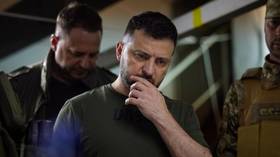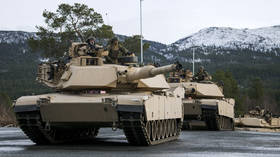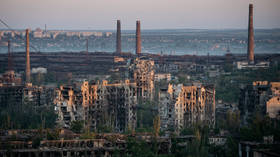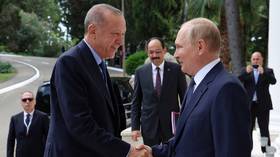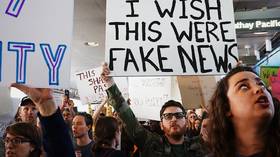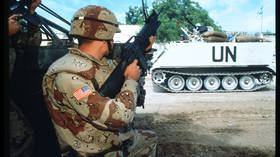‘If this is not evil, then evil has no meaning’: How a landmark speech paved the way for the US to unleash death and destruction
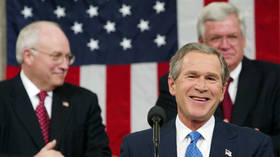
“If this is not evil, then evil has no meaning. And tonight, I have a message for the brave and oppressed people of Iraq: Your enemy is not surrounding your country, your enemy is ruling your country. And the day he and his regime are removed from power will be the day of your liberation” – this promise was made exactly 20 years ago, on January 28, 2003, by then US President George W. Bush in his annual message to Congress. This speech concerning Iraqi President Saddam Hussein became a prologue to the beginning of a large-scale and protracted military conflict, whose consequences the region is still dealing with today.
Unfounded accusations that Iraq might be developing weapons of mass destruction (WMDs) became the main pretext for the invasion which started on March 20. Less than a year later, Washington admitted that it had been a false threat, but there was no turning back — Hussein was deposed and then executed. And the US occupied Iraq, plunging the country into chaos it is still struggling to overcome to this day.
‘So, what’s the difference?”
– was how Bush reacted in December of 2003 to a remark that pointed out that WMDs had not been found in Iraq.
According to Pentagon data from 2019, total losses of American servicemen during the entire Iraqi war amounted to 4,487 people. While the exact number of civilian deaths is incalculable, it is definitely measured in the hundreds of thousands.
“This war has dealt a huge reputational blow to the United States. All their opponents now use this as an example of how it’s possible to bypass international law to carry out interventions in other countries without reason or pretext. It has also complicated the United States’ relations with its European allies and damaged Washington’s reputation in many non-Western countries around the world,” Malek Dudakov,a political scientist specializing in the US, said, explaining the consequences of the decision taken in March of 2003.
My Enemy’s Enemy is My Friend
America’s accusations against Hussein fell on fertile ground – and by the beginning of 2003, the Iraqi leader’s reputation had already been hopelessly damaged by his behavior in previous conflicts. During the Iran-Iraq war of 1980-1988, a gas attack carried out by the Iraqi army in the city of Halabja killed up to 5,000 people, mainly Kurds. During the eight years of the war, Iran’s direct losses from chemical weapons alone amounted to at least 20,000 people. That number increased significantly after the hostilities ended, as the long-term effects of the chemical reagent took their toll.
However, at that time, the United States turned a blind eye to Hussein’s atrocities, to put it mildly, since Washington recognized Iran, where the Islamic Revolution had taken place in 1979, as a much more dangerous enemy. Therefore, fully aware that the attack had been carried out by Iraq, the United States chose to lay blame on the Iranians for the tragedy in Halabja, as Joost Hilterman pointed out in an article for the New York Times.
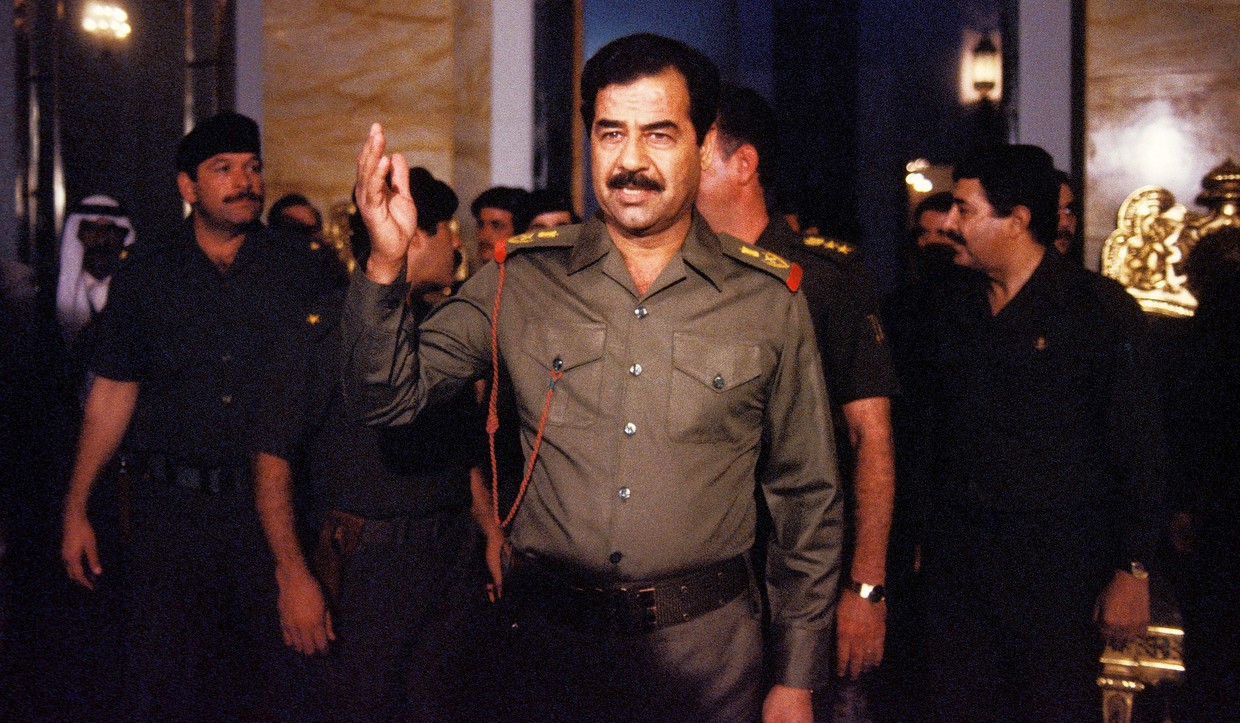
In the early years of that war, Washington generally acted as a full-fledged ally of Baghdad. Citing intelligence officials and the State Department, the New York Times reported that Ronald Reagan’s administration had secretly provided Iraq with highly classified intelligence data in the spring of 1982, and had also allowed US allies to sell American weapons to help Hussein.
Washington’s attitude towards the Iraqi dictator changed because of the Gulf War, which began with Iraq’s invasion of oil-rich Kuwait in August of 1990. On November 29 of that year, after numerous attempts failed to persuade Baghdad to settle the crisis peacefully, the UN Security Council adopted Resolution No. 678, which gave Hussein’s government a month and a half to end the occupation. When he refused to do so, the US-led Multinational Forces Coalition (MNF) conducted Operation Desert Storm, which liberated Kuwait after a long air offensive. It is noteworthy that this conflict was the first after the end of the Cold War in which the Soviet Union diplomatically supported the United States.
Interestingly, in 1991, the head of the Joint Chiefs of Staff, Colin Powell, argued with the head of the Pentagon, Dick Cheney, whose associates were already calling for the overthrow of Hussein. However, President George H.W. Bush did not dare embark on such an adventure at that time.
After the conclusion of Desert Storm, the UN demanded that Iraq destroy its stocks of weapons of mass destruction, as well as their production programs, and provide proof that it had done so to its inspectors. Though Baghdad accepted these resolutions, it did not fulfill all of their requirements in practice. In 1998, Saddam Hussein completely closed inspectors’ access to the country, accusing them of ‘espionage’.
However, in 2002, under pressure from the UN and Western countries, the President of Iraq unexpectedly agreed to an inspection. The report from the head of the IAEA, Mohammed ElBaradei, concluded that no signs of prohibited activities or any evidence of Baghdad’s resumption of a nuclear weapons program had been found during inspections at Iraqi facilities. The head of the commission, Hans Blix, expressed less confidence in this findings, but could provide no proof to contradict it. In fact, the only infraction was noted in a document on the Iraqi Air Force, which stated that Iraq had failed to destroy about 6,000 chemical rockets.
The conclusions of international inspections did not matter much to the United States, led by President George W. Bush.
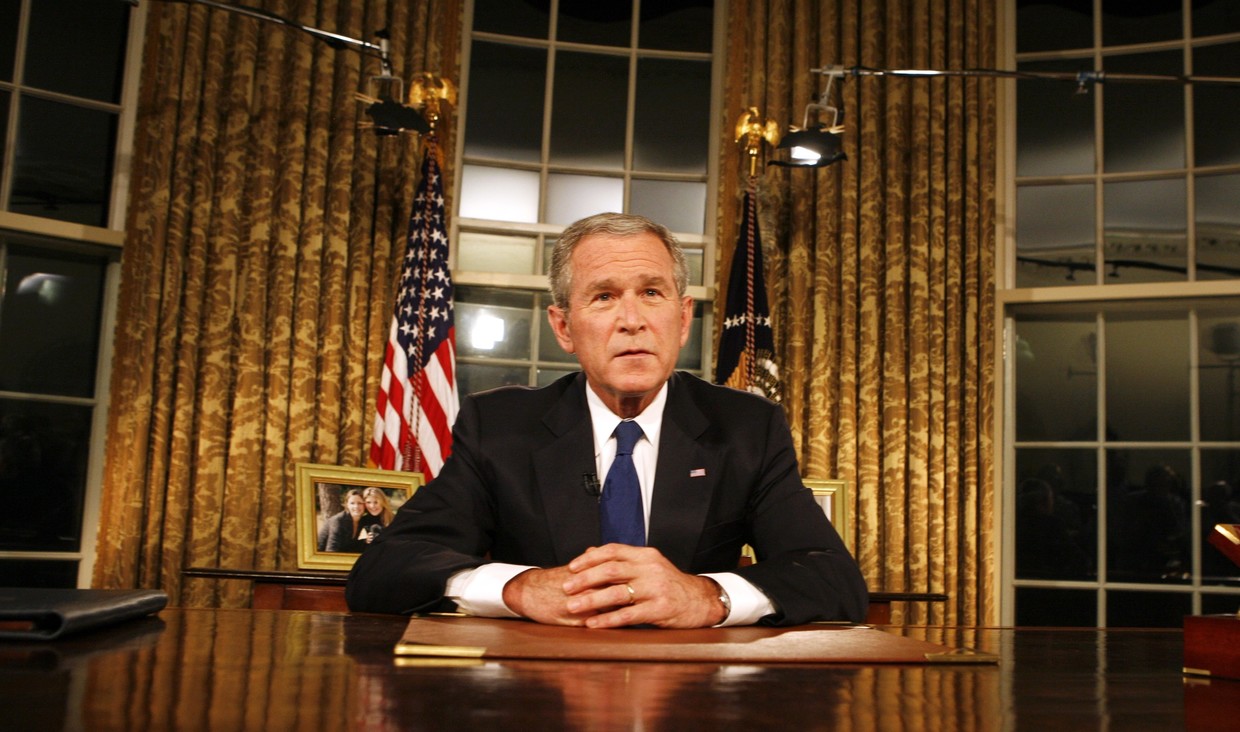
The US Operates According to Its Own Agenda
The first alarm bell sounded for Iraq in the state of the union address to Congress on January 28, 2002, when the American president branded it as part of an “axis of evil,” along with Iran and North Korea. However, at that time, the American leader devoted only one paragraph to Iraq.
“Iraq continues to flaunt its hostility toward America and to support terror. The Iraqi regime has plotted to develop anthrax, and nerve gas, and nuclear weapons for over a decade. This is a regime that has already used poison gas to murder thousands of its own citizens – leaving the bodies of mothers huddled over their dead children. This is a regime that agreed to international inspections – then kicked out the inspectors,” Bush said.
In October of 2002, Congress gave the president the green light to use armed forces in Iraq. Here, in addition to arguments concerning biological weapons, accounts of the Iraqi regime’s crackdowns came in very handy. Allegations that Hussein allegedly maintained close ties with Al-Qaeda also came into play, though the latest data from US authorities found no proof of this.
As Malek Dudakov noted in a conversation with RT, by that time, the American establishment viewed Saddam Hussein and the Iraqi government as an absolute evil. The Iraqi leader was repeatedly compared to Hitler, and there were multiple leaks to the press alleging that he had weapons of mass destruction, including nuclear weapons.
“The presidential administration actively promoted all these fears, trying to maintain Bush’s approval ratings, as well as the patriotic fervor that had been prevalent since September 11. After those terrorist attacks, America needed some obvious opponent, as the concept of “international terrorism” seemed somehow abstract and incomprehensible. Plus, the early successes in the Afghan operation may have gone to the White House’s head. It seemed to them that they could quickly and bloodlessly carry out the Iraqi campaign, overthrow Hussein, and reformat the Middle East for themselves. This would weaken Iran’s position, while simultaneously giving them control over oil reserves that were of no small importance to the United States. Taken together, all these reasons compelled Washington to get involved in this adventure,” Dudakov says.
The aforementioned Dick Cheney, who served as vice president in the administration of President G.W. Bush, is believed to have been one of the main shadow architects of the war in Iraq. In between working in government positions, he had served as Chief Executive Officer of the Halliburton oilfield services company, which later received the first contract for restoring and developing oil fields in occupied Iraq.
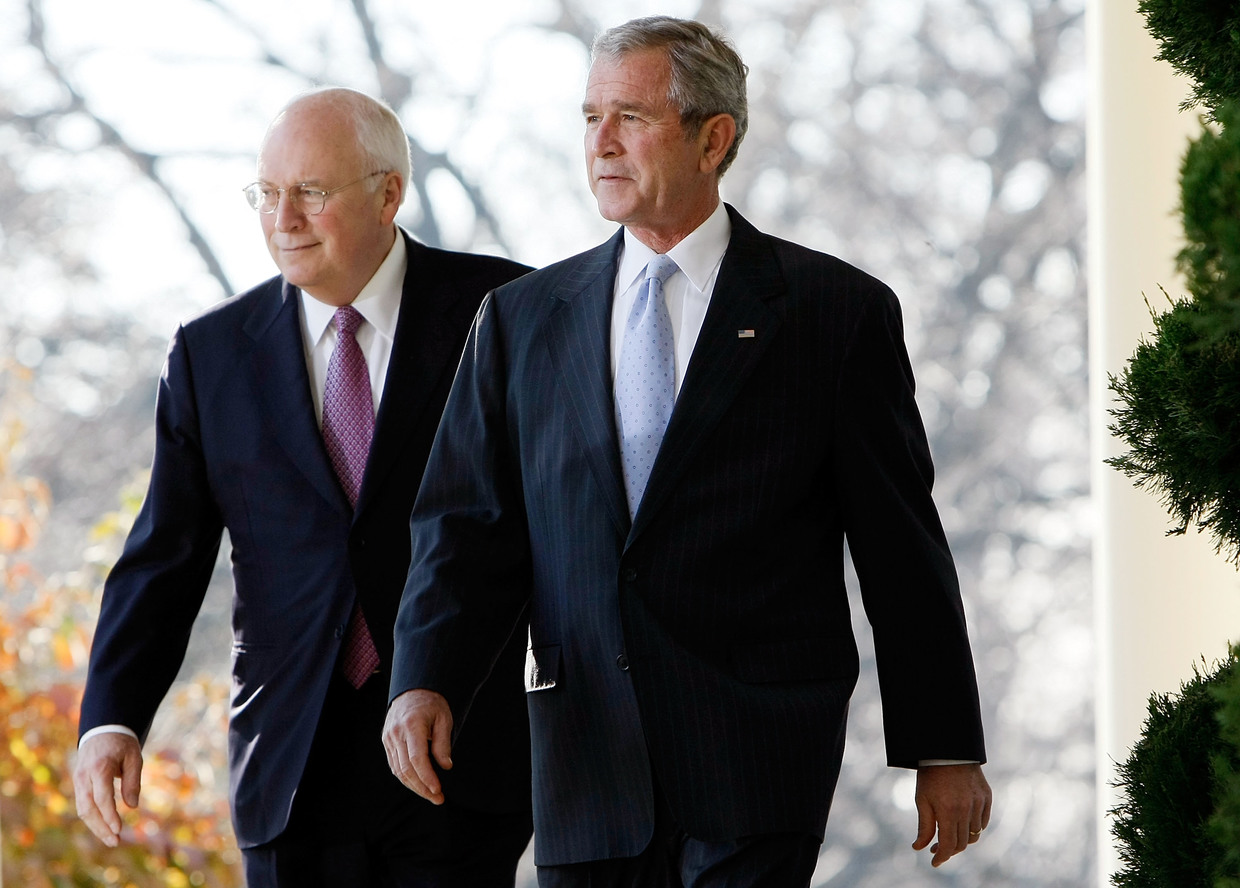
He’s Got Something to Hide
In January 2003, the US President made it clear in an address to Congress that he was going to use the power it had granted to him to invade:
“We will consult, but let there be no misunderstanding: If Saddam Hussein does not fully disarm for the safety of our people, and for the peace of the world, we will lead a coalition to disarm him.”
The White House probably still expected to receive UN approval at that time, since one of its arguments was that Hussein had demonstrated “utter contempt for the United Nations and for the opinion of the world,” and therefore must answer for that.
Bush claimed that Saddam Hussein was engaged in developing chemical, biological, and nuclear weapons, even as international inspectors were working in his country. Allusions to the UN were spun to fit the American administration’s agenda – the emphasis was put on the doubts that Blix had voiced, and, in essence, Hussein was already presumed guilty. “He has given no evidence that he has destroyed it [weapons of mass destruction],” Bush said several times.
The president cited US intelligence data, according to which Saddam Hussein had up to 30,000 munitions capable of using chemical reagents. Shortly before that, experts had only discovered 16, and Bush claimed, Iraq “has not accounted for the remaining 29,984 of these prohibited munitions.”
In making his accusations, the American leader also referred to the British government, according to which Iraq was searching for uranium in Africa, as well as three Iraqi defectors who alleged that the government had several mobile biological weapons in the late 1990s.
Saddam Hussein has not credibly explained these activities. He clearly has much to hide.”
Bush also referred to UN Security Council Resolution 1441 of 2002, which he said had provided Iraq with “the last opportunity to fulfill its disarmament obligations.” Though this document specified no automatic consequences for its non-fulfillment, the White House nevertheless had high hopes for the UN Security Council meeting that Bush announced, at which Secretary of State Colin Powell was set to speak. Subsequently, it was learned that, five days earlier, Bush had held a meeting with British Prime Minister Tony Blair, where he said that the US was ready to “twist the UN’s arm” to get a resolution approved to launch an invasion.
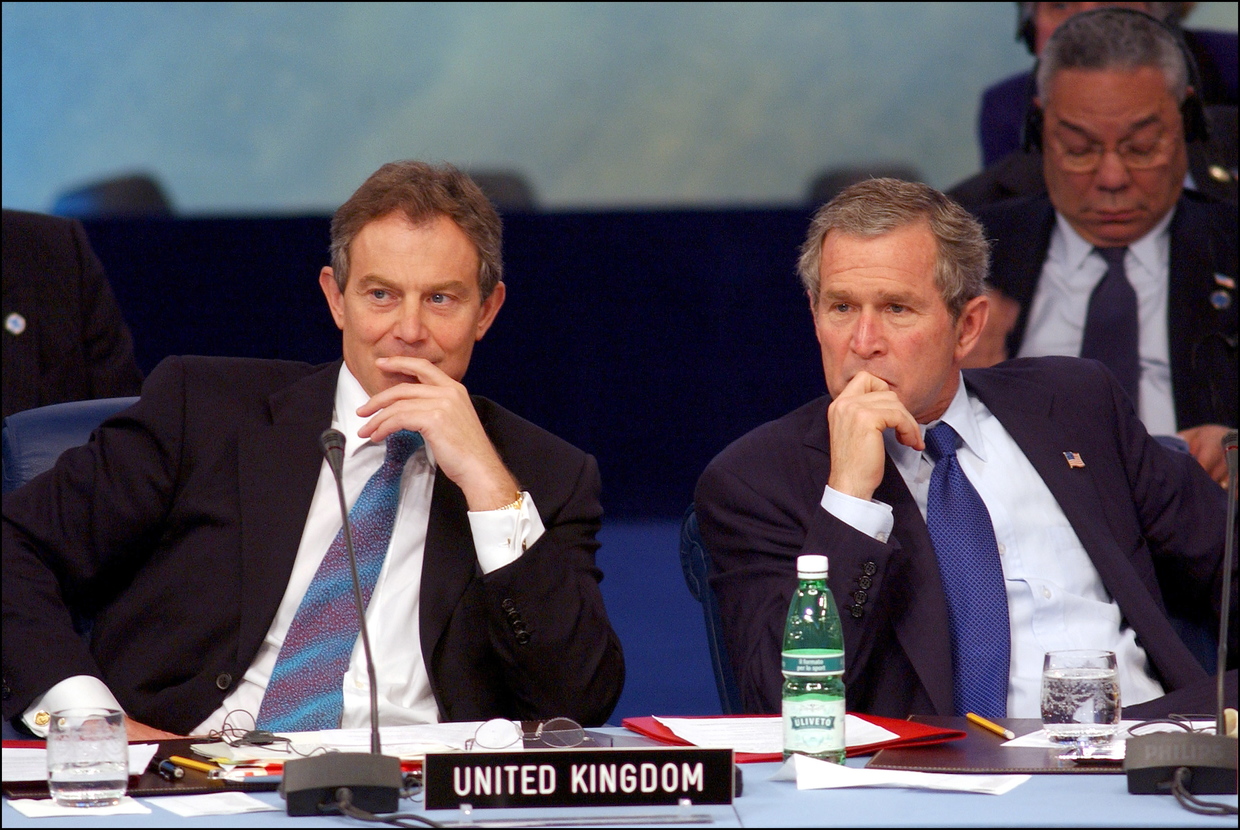
Powell’s Test Tube
At a special meeting of the UN Security Council on February 5, Secretary of State Powell spent an hour and a half presenting “irrefutable evidence” of the presence of weapons of mass destruction in Baghdad. This included satellite images, as well as information from radio intercepts and interrogations of Iraqi defectors. However, the main thing Powell focused on was not the current situation, but namely Hussein’s bad reputation.
The US Secretary of State pointed out that Iraq had acknowledged that it had biological weapons only four years after the United Nations Special Commission (UNSCOM) had begun to carry out inspections. And, according to Powell, the 8,500 liters of anthrax that Baghdad had admitted to possessing in 1995 was a gross underestimate.
To hammer home the danger posed by Hussein’s regime, Powell showed his colleagues a test tube containing a white powder. While he didn’t claim that this substance was dangerous, he said that he wanted to show the quantity of anthrax spores mailed to two senators in 2001, which had been enough to shut down Congress.
“The Iraqis have never accounted for all of the biological weapons they admitted they had, and we know they had... In fact, they can produce enough dry biological agent in a single month to kill thousands upon thousands of people. And dry agent of this type is the most lethal form for human beings,” the head of the State Department stated, trying his best to scare all those present.
As it turned out after the invasion, the CIA’s intelligence on the presence of mobile manufacturing labs for biological weapons in pre-war Iraq was false. After this was made public, Powell said several times that he regretted that speech, but did not feel guilty.
I didn’t lie. I didn’t know it was not true.”
“I was secretary of state, not the director of intelligence,” he explained in an interview in 2005, a few months after he was asked to leave the administration of George W. Bush.
Yuri Rogulev, director of the Franklin Roosevelt Foundation for the Study of the USA at Moscow State University, noted in a comment to RT that the false assurances given by Americans regarding the state of affairs in Iraq was far from the first such case in history.
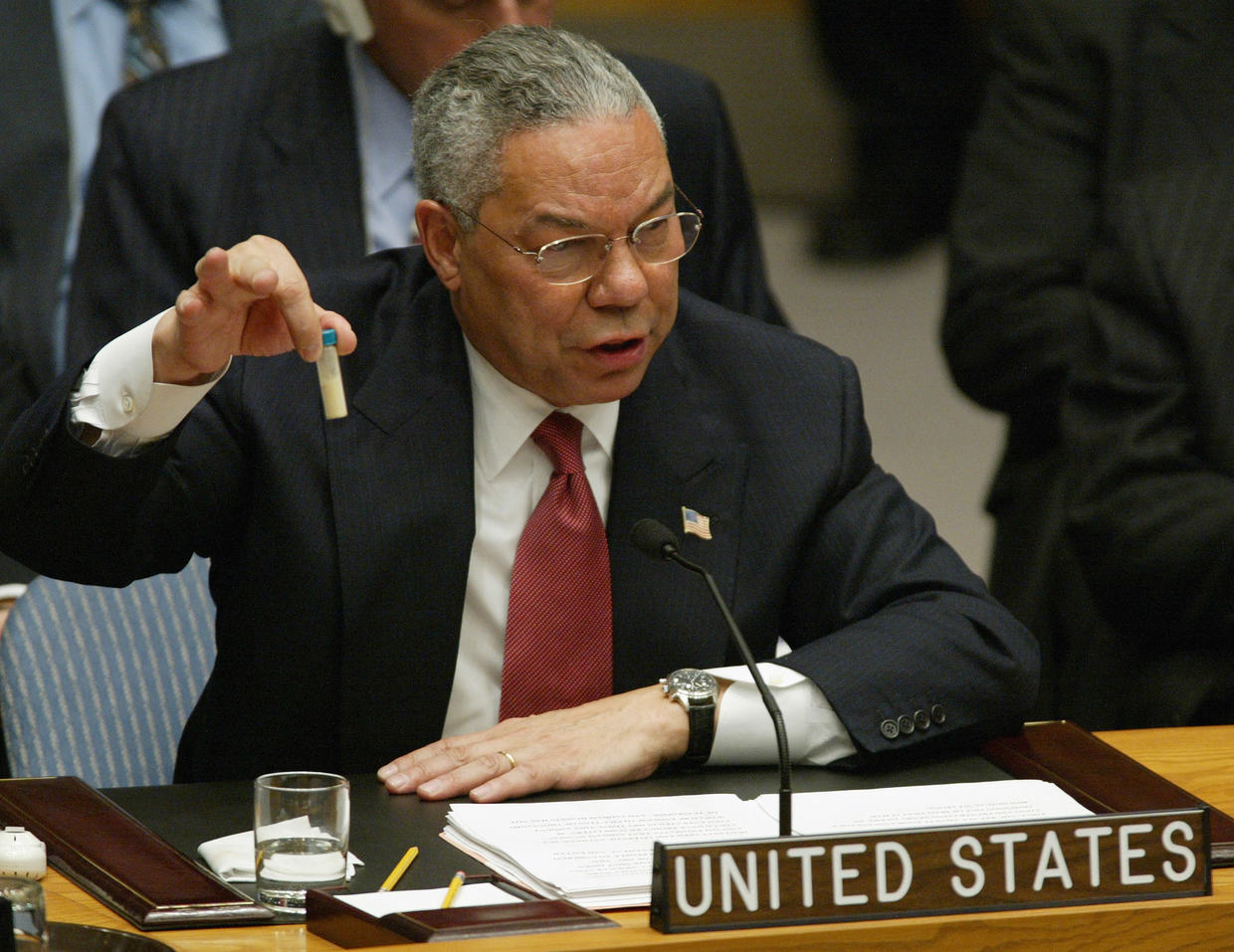
“I wouldn’t consider this speech a milestone moment. For example, there was the invented second incident in the Gulf of Tonkin, after which the Vietnam War began, and the United States has invaded Panama, Grenada, and other countries under various pretexts. The only thing that was unique in the run up to the invasion of Iraq was the accusations about weapons of mass destruction. The fact that the US made a unilateral decision on Iraq was hugely significant for the world order in many respects. Although Congress gave its permission, there was strong opposition even inside the United States. The UN had not granted the US permission to invade Iraq. Even America’s closest NATO allies, Germany and France, opposed. But the United States took this step anyway, openly demonstrating that they were ready to do as they saw fit, regardless of other opinions,” Rogulev concluded.
Last Attempt
On the eve of the UN Security Council meeting on March 10, it became clear that the majority of its members still opposed any resolution leading to war. But this could not stop Washington. Russia nevertheless made one last desperate attempt to prevent the war.
On March 18, 2003, State Duma deputy and former Prime Minister Yevgeny Primakov urgently flew to Baghdad by order of President Vladimir Putin. He offered Hussein the opportunity to voluntarily resign from the post of president, explaining that, otherwise, a catastrophe was inevitable.
“I told him [Hussein] the following: ‘If you love your country and your people, if you want to protect your people from becoming inevitable victims, you must resign as president of Iraq,’” Primakov told journalists. In response, the Iraqi leader said that he’d also been persuaded to resign during the first Gulf War, but the war turned out to be inevitable anyway. “After that, he patted me on the shoulder and left,” Primakov said. Russia’s representative also stressed that Iraq “needs to do everything to facilitate the work of international inspectors.” According to Primakov, after this conversation, Iraq really began to destroy the banned missiles that it had previously refused to eliminate.
But on March 20, without the sanction of the UN Security Council, the Americans began, as Bush put it, “a military operation to disarm Iraq, liberate the Iraqi people, and protect the whole world from serious danger.” The operation began with air strikes on Baghdad. The fate of the country was sealed: the Iraqi army was defeated in three weeks, Hussein was overthrown, but there were no real winners.
